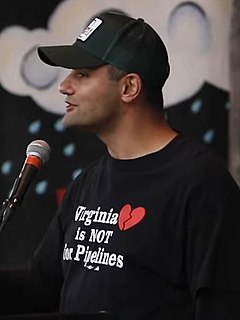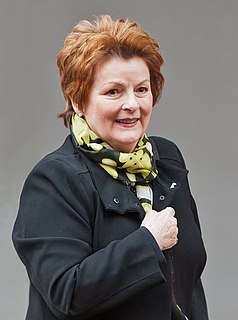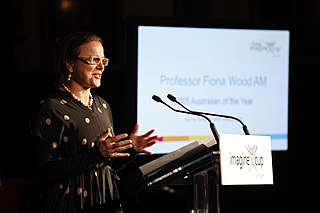A Quote by Amber Rudd
Sometimes a politician gets up and talks about British values and what we think that means, and we can be knocked down quite harshly, but I don't think we should be. I think we should be able to talk about British values and about immigration without people saying, 'Oh, you're just being like a crazed other party.'
Related Quotes
When we talk about values, I think of rationality in solving problems. That's something I value. Fairness, kindness, generosity, tolerance. That's different. When they [Conservative right wing Republicans] talk about values, they're talking about things like going to church, voting for Bush, being loyal to Jesus, praying. These are not values.
We should be able to have a conversation about immigration; we should be able to have a conversation about what skills we want to have in the U.K. and whether we need to go out of the U.K. in order to get them to boost our economy, and I don't think we should have a situation where we can't talk about it.
I think the Democratic Party is firmly in the wilderness right now and doesn't know exactly what to do. We talk about trust. Fundamentally, the American people have lost a lot of trust in both parties, but in particular, my party. Growing trust is a very simple calculation: People want to know what your values are, and they watch your behaviors. If your behaviors align with your values, then they trust you. If you say I'm for the people, but we're just as bought off as the other party, or we say we're for fairness, but we gerrymander just like the other side, people see.
I often talk with other actors about that time when you've just finished a job, because I think you do take on the characteristics of some of the characters you play. Sometimes it can be a great thing and sometimes it's a bit haunting because you're not quite sure how to leave it on set. My dad talks about it as being 'de-personalised.'
You bring up identity politics and I think that this is really causing a divide in the American left where we're rallying too much around identities. We should celebrate our heritage, we should organize by identity, but we shouldn't advocate and push for certain identities. We shouldn't talk about women suffrage, or plight of Muslims, or refugees; we should talk about our common American values.
I'm not in show business because I don't have to go to the meetings, I'm just not a part of it, I don't belong to it. When you "belong" to something. You want to think about that word, "belong." People should think about that: it means they own you. If you belong to something it owns you, and I just don't care for that. I like spinning out here like one of those subatomic particles that they can't quite pin down.
Being able to influence the outcome, being able to do something about it, to be able to stop the bleeding. You're not being useful if you're just standing there going "Oh, that's awful!" You're only useful if you actually do something about it and I think that goes for everything. If you actually do something about what's in front of you, then you are actually contributing and you haven't got time to be self-centred or sorry for yourself. You should be doing something about the person you really should feel sorry for.
The Electoral College is a project that calls on their judgment. If we don't like it, we can talk about how to eliminate it. I'm not quite convinced we should eliminate it completely. I think it's important to have a final check be somebody other than the Supreme Court. But given that it's there, we should take it seriously. And taking it seriously says they should exercise their judgment according to the moral values, the principles that are part of our constitutional tradition today. And those principles say equality.
I might sound like a crazy person, but that's the way I pump myself up. You know how some people are just like 'I have to talk about it'? Sometimes I'll call my husband and we'll talk about it, sometimes I have to talk to myself in the mirror. So I start talking to myself: 'You got this. Don't think of this as Sports Illustrated, just think about this as the best swimsuit campaign you've done in your life. And just kill it and own it and don't put that pressure on yourself.'






























